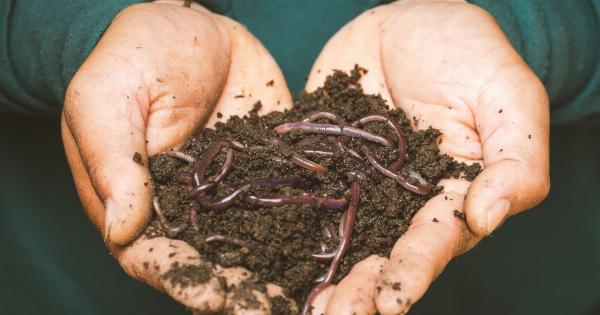When it comes to dandruff, most people think about external factors like climate, hair care routines, or even skin conditions. However, the truth is that our diet can also play a role in the development and severity of dandruff.
The foods we consume on a daily basis can either exacerbate or alleviate this pesky scalp condition.
Understanding dandruff
Before we delve into the relationship between diet and dandruff, it’s important to understand the basics of this common condition. Dandruff refers to the flaking of the scalp that occurs due to accelerated skin cell turnover.
It can be caused by several factors, including:.
- Overactive oil glands on the scalp
- Fungal infection
- Irregular scalp hygiene
- Skin conditions like eczema or psoriasis
While these factors are often the primary culprits behind dandruff, recent studies suggest that diet may also play a significant role.
The link between diet and dandruff
The connection between diet and dandruff can be attributed to factors such as nutritional deficiencies, food allergies or sensitivities, and gut health. Let’s explore each of these in detail:.
Nutritional deficiencies
A balanced diet is essential for overall health, including the health of our scalp. Nutritional deficiencies, particularly those related to vitamins and minerals, can contribute to dandruff. For example:.
- A lack of zinc in the diet has been linked to a higher risk of dandruff.
- Vitamin B deficiency can lead to dry and flaky skin, including the scalp.
- Insufficient intake of omega-3 fatty acids may also play a role in the development of dandruff.
Thus, ensuring that your diet is rich in these essential nutrients is crucial for maintaining a healthy scalp.
Food allergies and sensitivities
Food allergies and sensitivities can trigger various skin conditions, including dandruff. If you have an undiagnosed food allergy or sensitivity, it could be exacerbating your dandruff symptoms. Common culprits include:.
- Gluten: Some individuals with gluten sensitivity may experience dandruff-like symptoms when consuming foods containing gluten.
- Dairy products: Dairy sensitivity has been linked to skin issues, including dandruff.
- Processed foods: High intake of processed foods, which often contain additives and preservatives, may contribute to dandruff symptoms.
If you suspect that a certain food is aggravating your dandruff, consider undergoing an elimination diet or consulting with a healthcare professional for proper testing and guidance.
Gut health and dandruff
The health of our gut microbiome has a profound impact on our overall well-being, including the health of our skin. An imbalance in gut bacteria, known as dysbiosis, can manifest as various skin conditions, including dandruff.
A diet high in sugar, processed foods, and low in fiber can disrupt the balance of gut bacteria, potentially contributing to dandruff symptoms.
Consuming probiotic-rich foods like yogurt, kefir, and sauerkraut, as well as incorporating fiber-rich fruits, vegetables, and whole grains into your diet, can help promote a healthy gut microbiome and potentially alleviate dandruff.
Managing dandruff through dietary changes
While addressing diet alone may not completely resolve dandruff, it can certainly help in managing and reducing its severity. Here are some dietary changes you can consider:.
Increase consumption of omega-3 fatty acids
Omega-3 fatty acids possess anti-inflammatory properties that can contribute to a healthier scalp. Include foods rich in omega-3s such as fatty fish (salmon, mackerel, and sardines), walnuts, flaxseeds, and chia seeds in your diet.
Ensure adequate intake of zinc
Zinc plays a crucial role in maintaining scalp health and controlling oil production. Incorporate zinc-rich foods like oysters, lean meats, whole grains, and legumes into your diet to support a healthy scalp.
Consider a gluten-free diet
If you suspect gluten sensitivity, try eliminating gluten-containing foods like wheat, barley, and rye from your diet for a few weeks to observe any changes in your dandruff symptoms.
Monitor dairy consumption
Reduce your intake of dairy products and observe if it has any impact on your dandruff symptoms. Opt for dairy alternatives like almond milk or soy milk if necessary.
Eat a well-balanced diet
Avoid processed foods as much as possible and focus on consuming a variety of whole foods, including fruits, vegetables, lean proteins, and whole grains. A well-rounded diet ensures you receive an array of nutrients necessary for a healthy scalp.
Conclusion
Dandruff is a common scalp condition that can cause embarrassment and discomfort. While factors like climate, hair care routines, and skin conditions play a significant role, our diet can also influence the development and severity of dandruff.
Nutritional deficiencies, food allergies or sensitivities, and gut health all contribute to this condition. By making appropriate dietary changes, such as increasing omega-3 intake, ensuring sufficient zinc levels, and considering gluten and dairy elimination, you may be able to manage and alleviate your dandruff symptoms.
Remember that in severe cases, it is essential to consult with a dermatologist or healthcare professional for a comprehensive diagnosis and appropriate treatment.




























